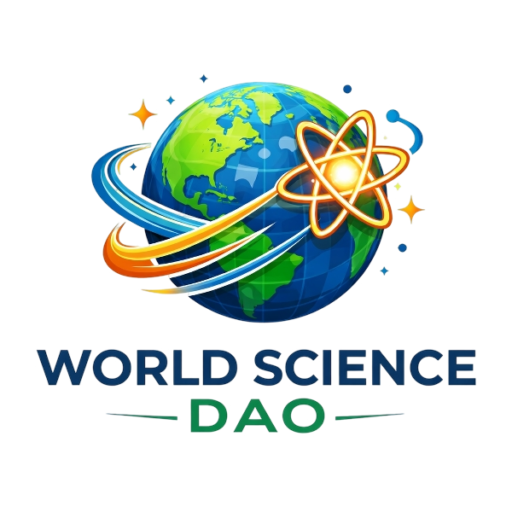|
Getting your Trinity Audio player ready...
|
How R&D funding changed over time and how it can be improved now, using Internet and AI technology, instead of traditional institutions, for distributing R&D funds.
From Royal Patrons to National Science
- The history of scientific funding is as old as organized science itself. In the early centuries of modern science, pioneering researchers often depended on personal wealth or private patrons. Figures like Galileo Galilei and Isaac Newton carried out much of their research thanks to noble or royal sponsorship. Science was a privilege of the few — accessible mostly to those who either belonged to elite circles or could convince them of the value of their work.
- By the 19th and early 20th centuries, as science began to industrialize, nations recognized its strategic and economic importance. Government agencies started to fund research, and national academies grew into powerful institutions. The public model of funding — research grants, university laboratories, and national projects — became the dominant system.
The Age of Competitive Grants
After World War II, government funding for science expanded rapidly. Programs like those run by National Science Foundation in the U.S. or the European Research Council in the EU gave billions to researchers worldwide. This era enabled unprecedented scientific progress — from space exploration to modern medicine.

But it also introduced bureaucratic gatekeeping. Only a small portion of applicants received grants, often favoring institutional prestige and seniority over pure scientific merit. Many discoveries by independent researchers remained unfunded or unnoticed.
Philanthropy and Venture Science
- Parallel to government funding, philanthropic foundations and private initiatives emerged — Howard Hughes Medical Institute, Wellcome Trust, and others. In recent decades, tech billionaires and corporate R&D also became major players.
- This opened new possibilities but also concentrated power in the hands of a few funders with their own agendas. Innovation became tied to politics, branding, and financial ROI — leaving countless visionary but unconventional ideas in the shadows.
The Rise of Decentralized Science (DeSci)
In the 2020s, a new movement emerged: Decentralized Science (DeSci). Enabled by blockchain technology, DeSci platforms and DAOs allowed global communities to fund and govern science directly — without central bureaucracies. This was a radical shift:
- Scientists could publish results on-chain and be rewarded transparently.
- Anyone could support research they believed in.
- Communities, not institutions, decided what matters.
Yet, DeSci still faced key limitations: fragmented funding, lack of mass participation, and difficulty in scaling to match the size of national research budgets.
The Next Stage: AI Internet-Meritocracy (AIIM)
Enter AI Internet-Meritocracy — an ambitious step beyond DeSci DAOs. AIIM is designed to automate scientific funding at a global scale:
- 💡 AI-based allocation: Funds are distributed not by committees, but by intelligent algorithms that analyze impact, quality, and community signals.
- 🌍 Universal participation: Every Internet worker — scientists, developers, marketers — can receive salary-like payments for their contributions.
- 📊 Transparent economy: All flows of funding are on-chain, fully auditable, and guided by open algorithms.
- 🔥 Massive scalability: Unlike grant committees, AI never sleeps — enabling a funding system that could reach trillions of dollars in global scientific investment.
Where once scientists had to convince kings, and later write endless grant applications, now funding can flow automatically to those who create value.
Why This Matters
Billions of dollars in scientific potential are lost every year due to monopolistic funding systems that overlook new ideas, independent researchers, and underrepresented regions. AIIM offers a way to:
- Accelerate global innovation;
- Reward every contributor fairly;
- Make science more democratic, efficient, and open.
This is not just a new funding platform — it’s a new economic formation for the knowledge age.
How You Can Help
AIIM is currently building the technological and economic infrastructure to make this future a reality. Unlike most legacy systems, it is community-driven and depends on early supporters.
👉 Donate today to help us build a funding system that belongs to everyone — not just institutions.
👉 Visit https://science-dao.org to support the project, learn more, and join the movement.
Ads:
| Description | Action |
|---|---|
|
A Brief History of Time
A landmark volume in science writing exploring cosmology, black holes, and the nature of the universe in accessible language. |
Check Price |
|
Astrophysics for People in a Hurry
Tyson brings the universe down to Earth clearly, with wit and charm, in chapters you can read anytime, anywhere. |
Check Price |
|
Raspberry Pi Starter Kits
Inexpensive computers designed to promote basic computer science education. Buying kits supports this ecosystem. |
View Options |
|
Free as in Freedom: Richard Stallman's Crusade
A detailed history of the free software movement, essential reading for understanding the philosophy behind open source. |
Check Price |
As an Amazon Associate I earn from qualifying purchases resulting from links on this page.



2 thoughts on “History of Scientific Funding — and the Next Great Leap in 2026”